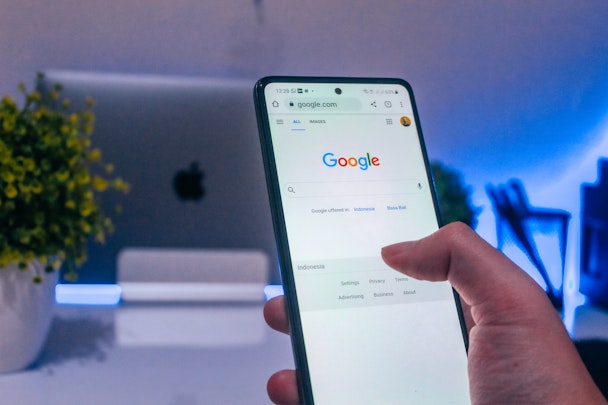The AI-powered search race is on as Samsung considers ditching Google for Bing
Reports suggest that Samsung is ditching Google as its default search engine in new handsets.

Tech companies' race to distinguish their AI offerings for marketers is beginning to have effects / Arkan Perdana
Google has been the default search engine on Samsung’s handheld devices for years. Over the past month, however, it has been reported that Samsung is set to pre-install Bing on upcoming devices instead.
That mooted change is seen as a canary in the coal mine when it comes to AI-powered search: the reason for Bing’s surprise inclusion in Samsung’s default apps is due to its recent integration of Chat-GPT. The new functionality enabled by that tech – which has already seen widespread adoption among the public – has sparked an arms race among tech companies to prove they have parity with Chat-GPT’s functions.
For Google, being replaced would have a significant impact on its ability to monetize search results – a $162bn-a-year business. In 2019 roughly 63% of its organic search traffic came from mobile devices, and it is likely that figure has increased since then. Meanwhile, in the third quarter of 2022, Samsung held a global smartphone market share of 21.2%.
Shares of parent company Alphabet fell nearly 4% in early trading. Microsoft, meanwhile, was up 1.7%.
Earlier in the year, a demonstration of Google’s AI-rival Bard was poorly received by commenters, who noted that it returned false information to a standard query. Since then, other AI-powered search and creative tools have been similarly criticized for citing non-existent sources and delivering false information at scale, including Chat-GPT.
Moreover, it has been noted that the way AI-powered search surfaces information does so in a way that undermines Google’s means of monetizing search results. To that end, Google is reportedly developing two new AI-powered search tools – one under the codename ‘Magi’ set to release next month. They are expected to build upon Bard and its chatbot interface.
Beyond search
The race to integrate AI into marketing has been going on for years but has been brought into stark focus by the launch of Chat-GPT and its competitors to the public. While Google and Microsoft are focusing specifically on the surfacing of information, other marketing and tech companies are using it behind the scenes to appeal to brands.
Meta’s global connections planning director Ian Edwards, for example, notes that the company has been using AI to deliver upon promises of efficiency rather than pursue a search revolution. Of its integration with Advantage+, he states:
“The product is driving performance improvements for advertisers and it is our fastest-growing AI-powered product, having crossed an annual run-rate of $4bn in December. Using Advantage+ shopping, fashion retailer Warehouse boosted total incremental sales by 47% after automating its ads on Meta apps with Advantage+ shopping campaigns and reduced cost per incremental sale with by 34% compared to usual campaigns.”
He also says that “We’ve been doing this for years - AI is the backbone of our business. We built a business that can show the right ads to the right people. This is not new, but the better our machine learning models get, the more relevant we can make ads, even when we have less data.”
For Google, then, the launch of the new Magi tools is an attempt to prove its own customer-facing tools are as valuable to consumers and partners as the much-hyped AI-powered Bing.
With its tech partners including Samsung reportedly considering jumping ship, there is a financial imperative to the launch as much as a reputational one.

